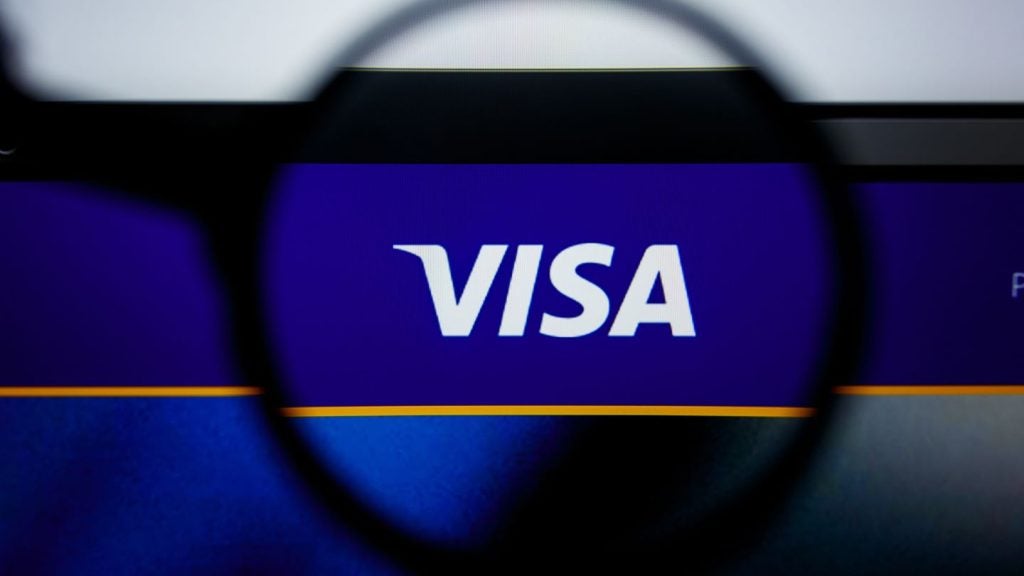At the end of January, UK card issuer Egg wrote
to more than 161,000 customers to inform them that their credit
cards were being withdrawn. Is this a knock-on effect of the credit
crunch or is Egg simply looking to offload high-risk customers?
Victoria Conroy reports.
UK internet bank and card issuer Egg has written
to around 161,000 customers, or 7 percent of its customer base, to
inform them that their credit cards will be withdrawn by mid-March
following what the issuer calls a risk profile review. Egg said
that the customers concerned posed “a higher than acceptable risk
profile”, such as missing payments or going over credit card
limits, and that after a 35-day period following notification,
those customers will not be able to borrow on their cards
anymore.
Ostensibly, Egg’s move comes at a time of
deepening concern about consumer indebtedness and faltering
economic conditions in the UK, and the issuer was hoping that its
risk review would be seen as a prudent action to head off the
possibility of rising delinquency and charge-off rates. However,
the move by Egg comes just seven months after it was acquired by US
banking behemoth Citi for £546 million, and just a few weeks after
Citi announced a massive slump in its fourth quarter 2007 profits
following the fall-out of the subprime mortgage crisis and ensuing
global credit crunch (see CI394).
“The credit profiles of affected customers had
deteriorated between the time they joined Egg and the acquisition
by Citigroup in May,” Egg said in a statement on 2 February. “The
decision to end these customers’ agreements was taken after
conducting a one-off, extensive risk review of our customers… Egg
is not asking for immediate repayment of balances or making any
changes to their current terms and conditions or interest rates,”
the company added.
Caution over bad debts
Egg’s move is deeply significant because it is the first such
widespread action taken by a UK credit card issuer, and highlights
how issuers are re-evaluating their lending criteria amid the
credit crunch. Customers with impaired credit records are finding
it much harder to get credit due to lender cautiousness over rising
bad debts.
How well do you really know your competitors?
Access the most comprehensive Company Profiles on the market, powered by GlobalData. Save hours of research. Gain competitive edge.

Thank you!
Your download email will arrive shortly
Not ready to buy yet? Download a free sample
We are confident about the unique quality of our Company Profiles. However, we want you to make the most beneficial decision for your business, so we offer a free sample that you can download by submitting the below form
By GlobalDataAt the time of Egg’s acquisition by Citi, Egg’s
arrears performance on its credit card was reportedly worse than
Citi had been expecting at the time of the acquisition, and the UK
issuer is thought only to have started using risk-based pricing,
whereby issuers assess each customer and offer them a variety of
annual percentage rates according to their risk profile, for its
customers shortly before its acquisition by Citi.
Mel Mitchley, director of industry relations at
UK credit reference agency Callcredit, told CI: “There’s no doubt
that lenders are tightening up their lending criteria to ensure
that they lower the risk of over-stretching consumers and
consequently the chance of loans, credit cards or mortgages not
being repaid – and they are doing this by making sure that their
data is used in the most sophisticated and responsible manner
possible.”
However, Egg’s move has caused widespread anger
amongst affected customers, many of whom have vented their anger in
the mainstream press over the fact that they were not high-risk
customers, but settled their accounts in full every month and
incurred no interest or banking charges, such as late payment fees.
This has led to speculation that these customers are being
offloaded by Egg because they are transactors, not revolvers, and
are therefore less profitable to the issuer – and to Citi.
Indeed, many customers who were alarmed at being
informed by Egg that they were considered high-risk went on to
check their credit scores through agencies like Callcredit and
Experian, only to find that they had ‘excellent’ credit scores.
Certainly, Egg’s PR methods have left thousands of customers
seething and many have threatened to move their banking business
from Egg to another provider.
Steve Willey, head of credit cards at price
comparison site moneysupermarket.com, said: “If Citigroup was
simply stopping further credit card spending by riskier Egg
customers, then it should be applauded. But the customer feedback
we have been receiving suggests many people who pay their balance
in full every month have been targeted. If Citigroup is using this
Egg crackdown as an excuse to get rid of less profitable customers,
then that is very disappointing.”
Consumer expert Martin Lewis, the founder of
Moneysavingexpert.com, also predicted that Egg’s handling of the
matter would “hurt the bank substantially”. He said: “They have
shot themselves in the foot with this. Of course this is about the
credit crunch. It’s the first real sign of the noose tightening
around consumers’ necks.”
Credit profiling
In its initial letter to affected cardholders informing them of its
decision to terminate their cards, Egg said: “Our lending policy
requires us to keep our portfolio within an acceptable level of
risk. The decision to end this agreement has been based on an
assessment of the credit profiles of this account in accordance
with our credit strategies. Factors that impact a credit profile
may include payment history, account conduct and other credit
information.”
However, following a flurry of complaints from
cardholders, outraged at being termed high-risk borrowers, Egg
released a revised statement saying: “We are sorry that some of the
161,000 Egg credit card customers who we wrote to last month were
upset by our decision to stop them spending on their cards from
next month. We confirm the letters were the result of a one-off,
post-acquisition review of our 2.2 million Egg credit card
customers. It was not, as has been suggested, an excuse to exclude
some ‘unprofitable’ customers. In this one-off review we assessed
that the credit profiles of these customers had deteriorated from
the time they joined Egg until the time Citi acquired Egg in May
2007 and that they presented a higher than acceptable credit risk
to the bank.”
“Risk assessment models are widely used in the
industry. They use a number of criteria to predict borrowing
behaviour, including behavioural data and information from external
bureaux, to predict the level of risk inherent in groups of
customers. We accept that not all of the individuals in the review
may be high risk or will default, but the probability is higher
than we wished to accept against our internal benchmarks. We are
confident that this risk assessment was effective and that the
selection criteria were properly applied. We stand by our decision
but will of course review any complaints arising.”
Calls for OFT investigation
Egg is now facing calls for an Office of Fair Trading (OFT) inquiry
into its decision. The OFT is the UK government’s consumer
protection agency. John McFall, chairman of the UK Treasury Select
Committee, said: “The motives of Egg need clear explanation if this
is a case of them ditching long-standing credit worthy customers
because they make no money out of them. Perhaps this is an issue
that requires an OFT investigation.”
That is not something that Egg will relish, given
the OFT’s hard line against default charges in 2006, in which
penalty fees were capped at £12, resulting in a fall in
profitability for UK card issuers. On 11 February the OFT stated
that it had received an official complaint about Egg from Labour MP
Nigel Griffiths.
However, both the British Bankers Association
(BBA) and UK payment industry body APACS say that Egg is simply
exercising its right to decline credit. Jemma Smith, a spokesperson
from APACS, told the broadcaster BBC: “A credit card company is a
business and it will always be looking to do one of two things:
either making sure that it’s lending money responsibly to people
who can afford to repay, or, as a business that needs to make a
profit, deciding whether it wants to give you and me a card. And at
any time it may decide to take that business away.”
APACS also points out that UK customers have more
than 1,000 credit card offerings to choose from.
Aside from regulatory pressure on profits, credit
card borrowing has fallen significantly in the UK over the past
year. Since last summer’s credit crunch, lenders in the UK have
been tightening up their lending standards, typically by rejecting
a greater number of credit card applicants and by cutting existing
cardholders’ credit limits. HSBC and Barclaycard have both gone on
record as saying that they are rejecting a much higher number of
credit card applicants than before, and Barclaycard is also
restricting the ability of some customers to withdraw cash on their
credit card because this indicates growing financial distress.
Anecdotal reports from users of the website
Moneysavingexpert.com suggest that when lenders note that
cardholders have made large repayments on outstanding balances,
they immediately lower the credit limit to match the new lower
revolving balance, effectively restricting the ability of the user
to borrow any more money on the card – and making it more likely
that the user will inadvertently go over the credit limit,
incurring penalty fees. Additionally, lenders are noting that many
cardholders have been able to make such large repayments because
they have applied for additional credit facilities elsewhere – the
practice known as ‘rate-tarting’.
There is also a growing occurrence of lenders
rescinding card agreements with customers and removing cards. Most
recently, Barclaycard, NatWest (part of RBS) and HSBC’s First
Direct subsidiary have begun writing to customers with inactive
card accounts to inform them that their cards will be cancelled.
Barclaycard said that it has sent letters to around 1 million
dormant account customers telling them that their accounts will be
closed, which Barclaycard says is part of an ongoing policy.
According to research from personal finance
website Fool.co.uk, customers aged between 34 and 49 years of age
are most likely to have their credit limits cut or their cards
cancelled altogether, but borrowers younger than 25 who have very
little credit history and no property are more likely to have their
limits extended, the website found.
David Kuo, head of personal finance at
Fool.co.uk, said: “We are not surprised that Egg has stopped
161,000 customers from spending more on their credit cards. This is
only to be expected as banks review the quality of their customer
base as the credit crunch unfolds. It is no surprise that they
[Egg] are doing this to good borrowers as well as risky ones.
Middle-aged borrowers with good credit histories are in fact most
at risk of having their credit cut, because these people are good
at managing their money, so the banks do not make any money out of
them. We are going to see more and more of this as the credit
crunch unfolds. Egg is just one of many.”
Although policies such as Egg’s have been touted
as proof of financial prudence and sensitivity of growing consumer
indebtedness, particularly towards high-risk customers, it appears
that lenders are somewhat inconsistent with their approach,
according to consumer action groups who have been monitoring the
situation.
Kuo maintained: “On the one hand, they are
slashing credit limits to older consumers who have become
accustomed to credit but on the other hand, they are increasing
limits for younger consumers at a time when we need to practice
greater financial discipline.”
Changing business models
But do issuers have any other real alternatives in the current
economic climate? And what if this is the start of lenders
reviewing their business models and becoming far more ruthless in
the search for profitability? There is also the question of whether
lenders can find a way to capitalise on transactors. There will
always be a proportion of customers who incur no interest charges,
and who will find their options narrowed slightly when it comes to
switching to other card providers. APACS says that more than
two-thirds of adults in the UK have a credit card and 68 percent of
them pay off their balances in full every month.
Certainly, non-interest payers do not generate
nearly as much revenue as revolvers, but it may be worth exploring
the comparative profitability of high-value and low-value
transactors. The high-value transactor will still pay off balances
at the end of the month, but higher-value purchases placed on the
card will also generate more interchange revenue.
There may also be a case for looking at the
customer’s entire product relationship – is it worthwhile to
terminate the card relationship with a customer who is a
transactor, but who also has a current or savings account with the
bank, and thereby risk the customer moving that business to a
competitor? In Egg’s case it appears that better segmentation
during its risk review profile would have helped it to avoid
customer accusations of a lack of clarity and of poor
communication, things which can damage consumer loyalty
severely.
It remains to be seen whether Citi, and Egg
itself, will see any lasting ramifications from the fall-out from
their decision to shift their focus onto revolvers. What is clear
is that lenders are evaluating their risk/reward ratios and are
intent on reducing exposure to risky and unprofitable customers
amid an increasingly glum economic outlook, both as a strategy to
boost profits and as a defensive credit crunch safeguard.







